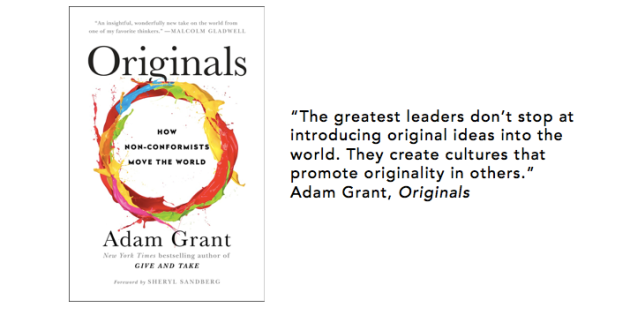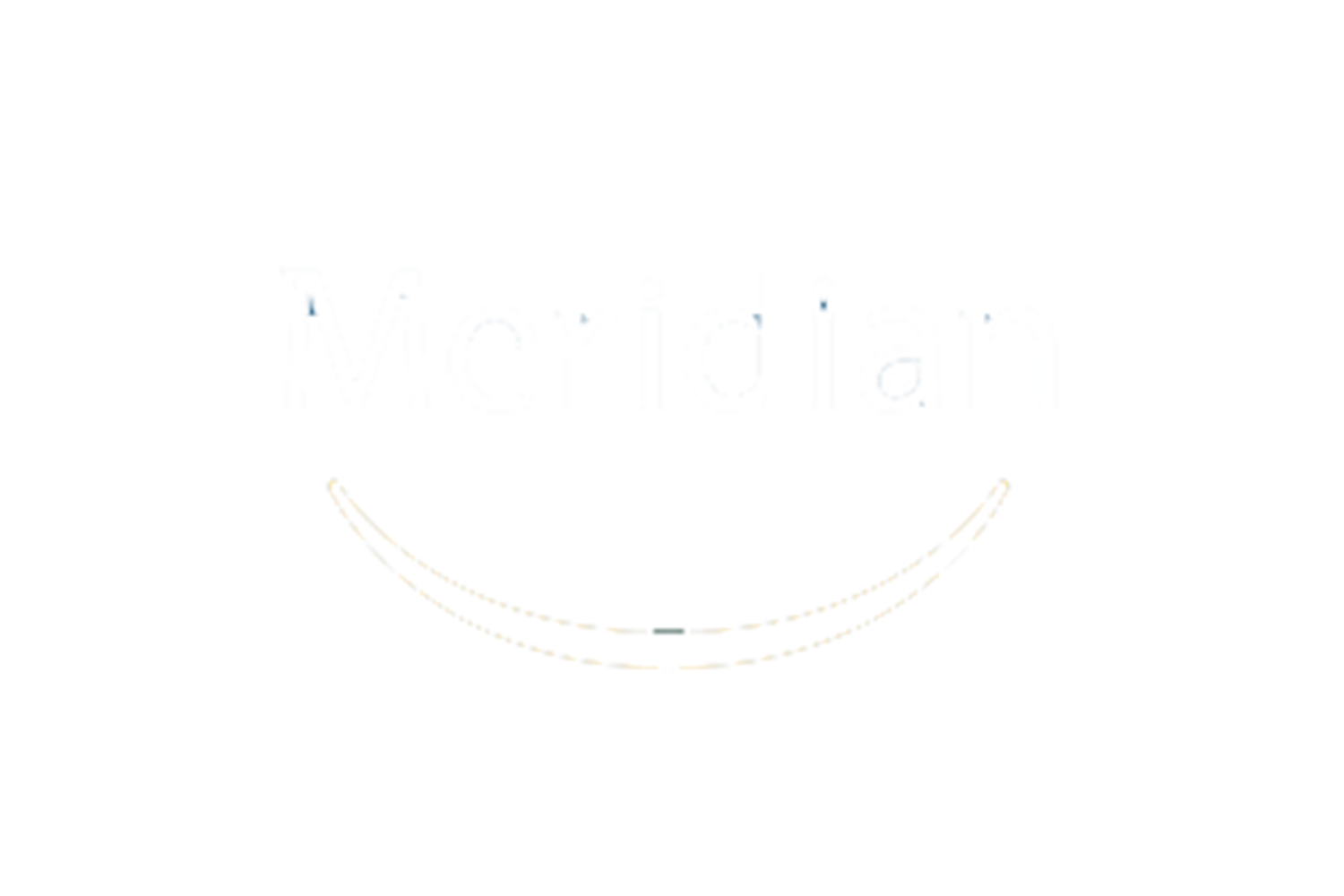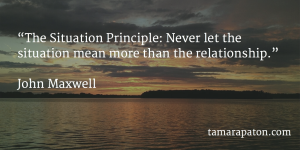

When I read Give and Take in 2013, I peeled through Adam Grant’s research and insights. I aspire to be giver, after all, so the book left me more optimistic about the future with each turning page.
In Grant’s new book, Originals: How Non-Conformists Move the World, I feared a very different experience. My copy stared at me judgingly from the edge of my desk in recent weeks, and I wondered whether Grant would confirm my self-doubt. Would his research label me a hopeless conformist, devoid of original thought?
Fortunately, Grant tread gently around my ego and pivoted my attention constructively. His lively writing and counter-intuitive insights point the reader to practical action rooted in fresh research. The book left me scrutinizing my work and family life and questioning the status quo. (And no domain was off limits, much to my husband’s frustration.)
Not surprisingly, the board environment provides an intriguing lens through which to interpret Grant’s conclusions. In particular, three of his ideas lend themselves well to the way we engage and bring creativity to the governance process.
A commitment to dissent separates a strong culture from a dangerous cult
Grant’s chapter on groupthink begins with a heavy reminder from Ralph Waldo Emerson: “The only sin which we never forgive in each other is difference of opinion.” The tone recovers quickly, citing an encouraging example in Bridgewater, an investment firm that invites dissenting opinions from every employee. Bridgewater attributes its consistently strong performance to this culture of independent viewpoints and the resulting opportunity to recognize fresh trends and investment opportunities. In short, dissent “makes it possible to be right when the rest of the market is wrong.”
How can we nurture this practice? Bridgewater begins by emphasizing dissent in its values statement. The founder’s principles include “Don’t let ‘loyalty’ stand in the way of truth and openness” and “No one has the right to hold a critical opinion without speaking up about it.”
Bridgewater CEO Ray Dalio reinforces these message with his own example. When a client advisor was disappointed with Dalio’s treatment of a client, the advisor gave the CEO a “D-“ rating – to his face! In response, Dalio sought others’ feedback and shared the email trail with the entire company so everyone could learn from the exchange.
On boards and committees, chairs tend to nudge discussion along in the direction of consensus. Grant has me reflecting on whether my boards spend sufficient time fostering divergent thought.
Recruit based not on cultural fit, but on cultural contribution
Grant warns that leaders who prize cultural fit end up hiring people who think in similar ways. His research finds that originality comes not from people who match culture, but from those who enrich it. And yet board nomination committees tend to favour candidates who speak, act, and think “like us.”
When evaluating potential directors, boards commonly refer to detailed wish lists of skills, industry backgrounds, and functional expertise. Building on this standard practice, Grant suggests identifying and seeking the personality traits that are currently missing from a team’s culture. Placing a premium on those attributes will ensure that the director recruitment process yields an enhanced and evolving, rather than static, board culture.
The best way to boost creativity is to produce more ideas at the right time of day and test them on the right people
Original, insightful questions are the hallmark of a skilled director. If we want to improve the quality of our questions, Grant encourages us to generate more ideas in the first place. His final chapter of action steps suggests tripling the number of ideas we put to paper, so that more of the high quality insights emerge.
His research also suggests that we focus on idea generation during our most creative time of the day. If you’re a morning person, your thinking tends to be more structured and linear when you first wake. Come evening, you’re more open to “wild leaps, unexpected patterns and random walks.” Contrary to our instincts, we should seek some productive time outside our most alert zones, if only to let the brain wander.
When testing new ideas, Grant’s work encourages us to seek out seasoned directors or new blood. He warns of “middle-status conformity,” in which our mid-level peers are too concerned about fitting in. Instead, we should build support for ideas with seasoned directors who have earned the freedom to be original and new recruits who have less to lose.
This is just a sample of the wisdom Grant gleaned from the evidence. I couldn’t put the book down and I think you’ll feel similarly drawn to his scientific approach to cultural questions. With Grant’s help, our boardrooms, businesses, and lives in general can be more innovative and engaging.
Question: How do you foster creativity in your own work? What practices make you a true original?










